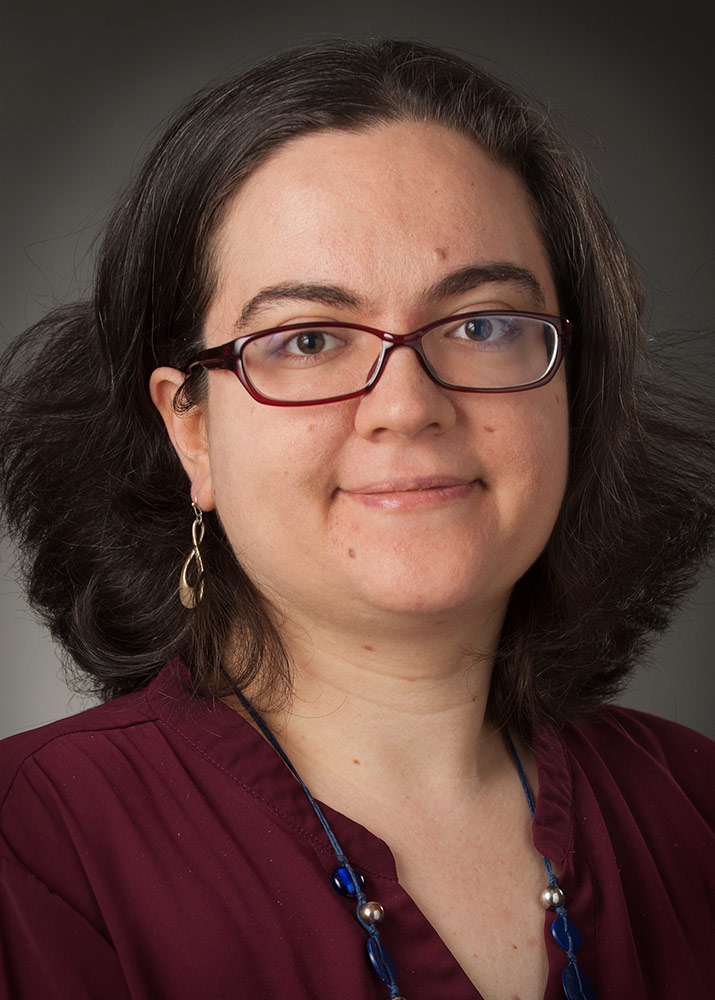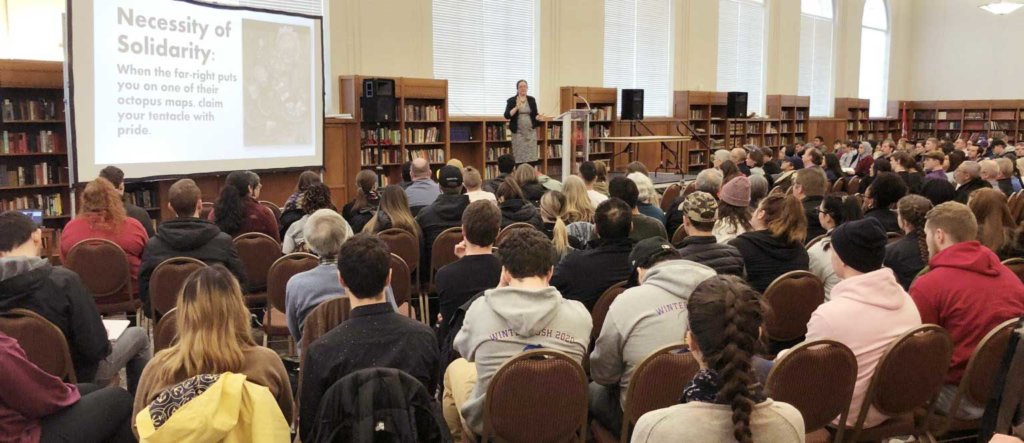After an outpouring of condemnation following the violent 2017 “Unite the Right” rally in Charlottesville, Virginia, adherents of “white nationalism” — a toxic cluster of neo-fascist ideologies based on the alleged inferiority of non-whites — have largely retreated from public view.

But the threat they pose remains very real, Joan Braune, an expert in extremist ideology and lecturer in philosophy at Gonzaga University, told a packed Hargreaves Hall Reading Room last Thursday. Her remarks were delivered as part of EWU’s second Chertok Lecture, an annual event that brings prominent activists, community leaders and scholars to the Eastern campus.
“There needs to be a collective understanding of what’s happening so that we can push back effectively against this movement,” Braune said.
To fully appreciate today’s threat, she adds, one must turn the clock back more than 50 years. White nationalism had its roots in conspiracy-driven pushback against demands for racial quality at the close of the Jim Crow era. As time passed, extremist opponents of racial justice coalesced into a loose coalition of “white power” groups, radical organizations whose disparate agendas and organizing tactics reflected broader obsessions with perceived threats to “white identity.”
After doctrinal disputes and pressure from federal law enforcement largely drove white power organizing underground, Braune said, it had to adapt to survive. Thus were born so-called militia movements, groups that hid their often violent, bigoted agendas behind more anodyne expressions of patriotism, 2nd Amendment rights and free expression. Today’s digitally savvy extremists, while no longer identifying as militias, are the inheritors of this shift.
“As we look at the past few years,” said Braune, “we’ve seen a real resurgence of this movement and the violence that is attendant around it … And because of the internet, people are being radicalized very quickly online.”
Braune went on to outline how contemporary white nationalists often identify with, and are increasingly influenced by, both covert and overt expressions of fascist ideology — ways of thinking that, loosely defined, embody an unwavering commitment to racial purity, an intense devotion to (and desire for) an authoritarian nation-state, and a strong sense that only violence can achieve political ends.
While some of these next-generation extremists hope to accomplish their goals by infiltrating and coopting mainstream political organizations, others are more apocalyptic.
“You have a wide sector of the white supremacist movement that has actively given up on the [infiltration] project,” Braune said. “They think, ‘The whole thing is going to hell, and this is our moment. If we don’t do something right now, nothing else can be done.’ All this is based on a curious mixture of despair and faith: That if you cause enough destruction the world will reset itself to the way you want it to be.”

Standing up to white supremacists, and doing it in the right way, is crucial to arresting their influence, Braune concluded.
“We do need mass movements, we do need mass organizing; we need forums, protests, community education — letting people know what they really are, what they stand for, what they’re trying to do — we need to do all the things that a traditional social movement does,” Braune said. “But we can’t let them dictate our agenda. It can’t be a process in which we just wait and react to the next bizarre nonsense thing that happens. We can’t be driven by, ‘Whose putting up flyers today?’ If we’re working against racism, against white supremacy, against other forms of oppression, we need to be out there working for equality and justice in all areas of society.”
The Chertok Lecture is named for the late Jeffers W. Chertok, former dean of the College of Social Sciences, in whose name an endowed memorial professorship was created in 2018. Last year’s event featured Paulette Jordan, a Native American member of the Idaho House of Representatives who ran as the Democratic nominee in Idaho’s 2018 gubernatorial election.

